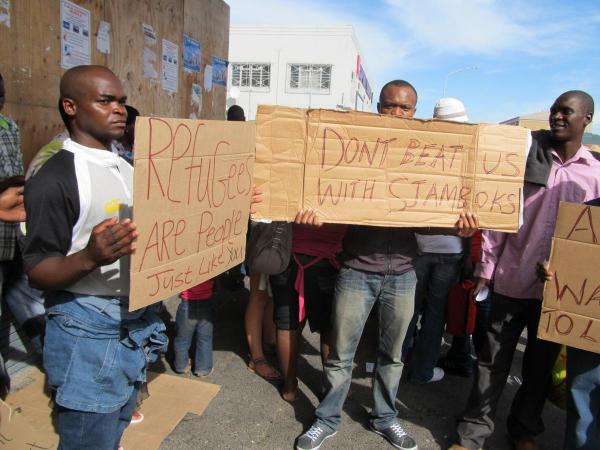Why we paid a bribe

GroundUp is a tiny and new news organisation. Less than two months into our existence, before we have even officially launched, we have faced our first tough ethical dilemna: whether or not to pay a bribe.
Based on a tip-off, one of our journalists posed as an asylum seeker and phoned a man who apparently can organise asylum papers fast. Without being prompted, he solicited a R800 bribe from her.
At the first meeting between our journalist and the middle-men in this transaction, we decided she should not pay the bribe, but try to determine as much information as she could. The meeting was not a success and we felt we had not got to the crux of the story.
For several days we debated with each other and ourselves. We changed our minds and then changed our minds again. We got advice from a lawyer and one of the country’s most respected investigative journalists. Both provided us with useful advice, but the decision would have to be ours. In the process we learned that at least one South African investigative journalism team has paid bribes in order to sting corrupt people. We eventually decided to proceed with the transaction. Before doing so, both the GroundUp editor and the journalist wrote and signed sworn affidavits explaining what we intended to do and why.
We were doing this in the same week that the model Sabina Essa was being publicly scolded for bragging about paying a bribe to Johannesburg police. However, while Essa’s motive appears to have been financial gain, ours was an act that we believed would be in the public interest.
The editor’s affidavit explains, “I believe it is wrong to pay bribes. This is in fact the reason I want the GroundUp project to expose what is going on at Home Affairs. I want these cases of bribery to be stopped. I believe the paying of the bribe in this specific instance can lead to the stopping of these bribes being paid in the future. It is therefore justified in this case to pay the bribe.”
The journalist wrote in her affidavit, “I will in no way benefit from the payment of this bribe, other than the kudos that I or GroundUp might receive for exposing corruption.”
Many will feel uncomfortable with what we have done. It is actually not that likely that our investigation will lead to much being done. After all, we are not the first organisation to expose corruption at Home Affairs. We are uncertain that we did the right thing, but on balance, we think we did. We think the public good outweighed the moral corruption that accompanies paying a bribe.
This was a difficult decision. We would be interested to hear your feedback.
Support independent journalism
Donate using Payfast

Don't miss out on the latest news
We respect your privacy, and promise we won't spam you.
Next: How the asylum seeking process can be improved
Previous: How immigrants are scammed at Maitland Home Affairs

This article is licensed under a Creative Commons Attribution-NoDerivatives 4.0 International License.
